One year since uprising, civil service is still stuck in crisis mode
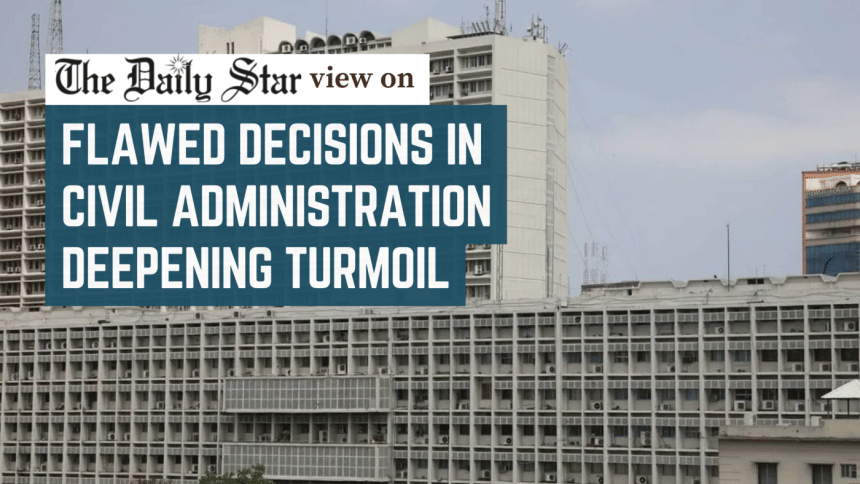
In mid-July, we ran an editorial on the practice of compensating "deprived" former bureaucrats through retrospective promotions, highlighting how it is creating fresh problems rather than resolving old ones and urging the government not to make it a norm. Our comment followed news that the government was set to "promote" several hundred retired officials from non-admin cadres, after its earlier move in December to award post-retirement promotions to 764 admin cadre officers. Far from rejecting this unprecedented trend of mass promotions for those no longer in service—resulting in them getting improved benefits and pensions—the government is reportedly going ahead with it. Even the Ministry of Defence is said to be reviewing applications from "deprived" retired armed forces officers.
Clearly, the government doesn't care about the bad optics such decisions create, nor about the criticism that retrospective promotions for retired officers—civil or military—undermine merit, waste public resources, and set a damaging precedent. This tendency to disregard valid concerns mirrors the approach of the very regime it replaced one year ago. As a new report by this daily suggests, over the past year, there have been numerous instances related to promotions, placements, appointments, and retirements across the public sector where it could have exercised far better foresight.
For example, during this period, some 1,500 officers were elevated to the ranks of deputy secretary, joint secretary, and additional secretary, which is quite staggering. Moreover, at least nine secretaries and 19 additional secretaries were sent into forced retirement, and 87 others designated as OSDs. Many of those promoted, including retired officials, face corruption allegations. Many incompetent but well-connected officers were elevated, and many retired officers were brought back. Add to that the frequent reshuffles. We understand the circumstances under which the administration had to make some of the decisions post-uprising, but its manner and motive have been rightly criticised by experts citing political favouritism, lack of leadership, and poor enforcement of rules. This has only led to chaos, resentment, and indiscipline within the administration.
Meanwhile, the government's much-publicised call for wealth statements from officials remains cosmetic, with no steps taken to publish them or strengthen outdated rules against corruption. It has also made little progress in undertaking internal reforms to make civil service more efficient and people-oriented. This state of affairs, we must say, is a disservice to the uprising that installed the interim government to fulfil the aspirations of the people. With the country now set on the path to a national election come February, the question is, can this fragile and unpredictable administration deliver a free, fair, and credible election as it promised?
These concerns must be addressed going forward. We urge the interim administration to take a critical look at its present state as well as performance over the past year. It must undertake necessary reforms and initiatives to restore trust that it will be able to not only deliver a credible election but also leave behind a strong institutional foundation for the next elected government.


 For all latest news, follow The Daily Star's Google News channel.
For all latest news, follow The Daily Star's Google News channel. 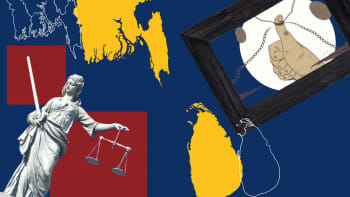
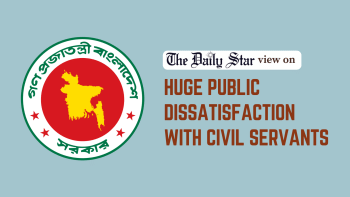




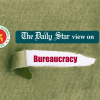




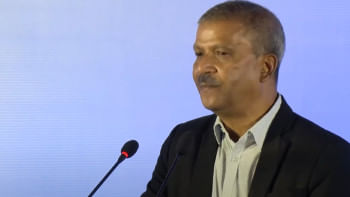
Comments